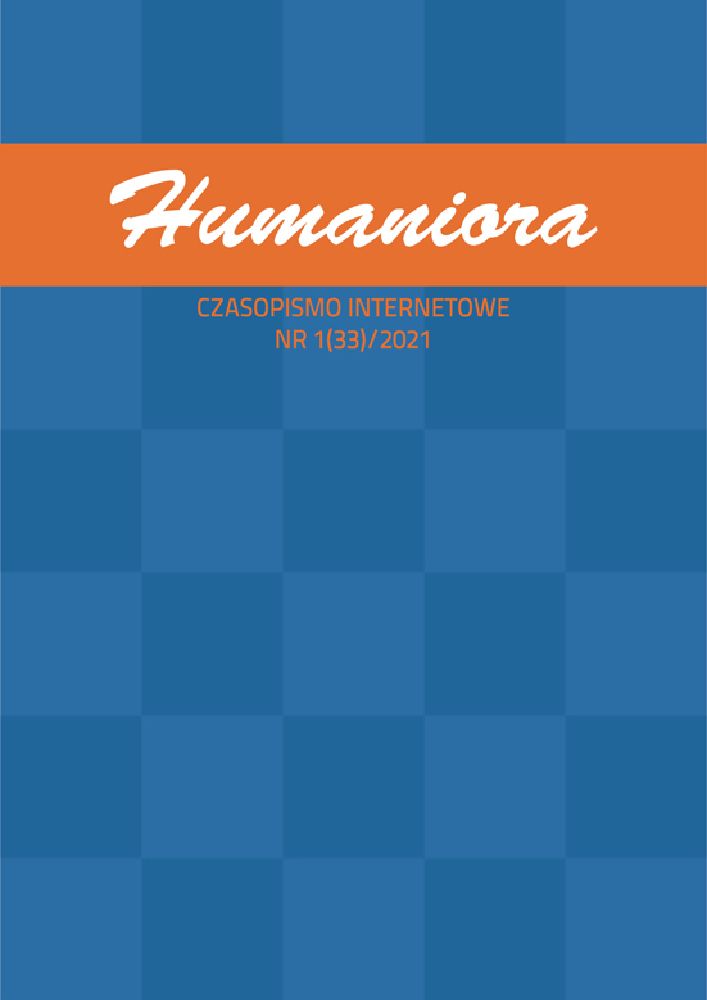Abstrakt
The paper discusses the philosophical and theological ideas of the Polish Brethren, a nontrinitarian reformed church in 16th Century Poland. Due to religious persecution, the Polish Brethren, also known as Socinians or Polish Arians, were forced to leave the Polish-Lithuanian Commonwealth and seek refuge in other European countries. Their legacy had a significant impact on the development of Enlightenment thought in Europe and inspired legislators both in Europe and America. The ideas developed by the Polish Brethren had a significant impact on the formation of Enlightenment ideas and thought trends, such as rationalism and deism referring to rationalism, as well as tolerance, particularly religious tolerance, and secularism manifesting in the separation of religious and secular institutions. Moreover, the ideas of Polish Arianism, which fascinated Enlightenment thinkers, became part of the cultural mainstream and were reflected in modern Western state institutions.
Bibliografia
Biagioni M., Radical Reformation and the Making of Modern Europe: A Lasting Heritage, Brill, Leiden 2017. DOI: https://doi.org/10.1163/9789004335783
Florida R.E., Voltaire and Socinianism, Voltaire Foundation, Banbury 1974.
Hillar M., From the Polish Socinians to the American Constitution, „Journal from the Radical Reformation” 1994, no. 3(2).
Israel J.I., Enlightenment Contested: Philosophy, Modernity, and the Emancipation of Man 1670–1752, Oxford University Press, Oxford 2006.
Kot S., Ideologia polityczna i społeczna braci polskich zwanych arianami, Wydawnictwo Kasy im. Manowskiego Instytutu Popierania Nauki, Warszawa 1932.
Kuderowicz Z., Polska filozofia pokoju. Historia idei pokoju w kulturze polskiej do 1939 roku, Uniwersytet Warszawski. Filia w Białymstoku, Warszawa 1992.
Łempicki Z., Renesans, Oświecenie, Romantyzm, Książnica Polska, Warszawa–Lwów 1923.
Locke J., List o tolerancji, PWN, Warszawa 1963.
Lucci D., From Unitarianism to Deism: Matthew Tindal, John Toland, and the Trinitary Controversy, „Études Épistémè” 2019, no. 35. DOI: https://doi.org/10.4000/episteme.4223
Marshall J., John Locke: Resistance, Religion, and Responsibility, Cambridge University Press, Cambridge 1994. DOI: https://doi.org/10.1017/CBO9780511598531
Marshall J., Locke, Socinianism, „Socinianism”, and Unitarianism, w: English Philosophy in the Age of Locke, ed. M.A. Stewart, Oxford University Press, Oxford 2000. DOI: https://doi.org/10.1093/oso/9780198250968.003.0005
Ogonowski Z., Filozofia polityczna w Polsce XVII wieku i tradycje demokracji europejskiej, PAN, Warszawa 1992.
Ogonowski Z., Socynianizm a Oświecenie. Studia nad myślą filozoficzno-religijną arian w Polsce w XVII wieku, PWN, Warszawa 1966.
Ogonowski Z., Socynianizm. Dzieje, poglądy, oddziaływanie, Oficyna Wydawnicza ASPRA-JR, Warszawa 2015.
Tazbir J., Państwo bez stosów i inne szkice, Universitas, Kraków 2000.
Williams G.H., The Radical Reformation, Truman State University Press, Kirksville 1992.
Wiszowaty A., O religii zgodnej z rozumem czyli Traktaty o posługiwaniu się sądem rozumu także w sprawach teologicznych i religijnych, PWN, Warszawa 1960.
Yolton J., John Locke and the Way of Ideas, Clarendon Press, Oxford 1956.
Licencja
Prawa autorskie (c) 2023 Sławomir Sztajer

Utwór dostępny jest na licencji Creative Commons Uznanie autorstwa – Bez utworów zależnych 4.0 Międzynarodowe.
Czasopismo oraz wszystkie zamieszczone w nim materiały są powszechnie dostępne i mogą być wykorzystywane do celów naukowych, edukacyjnych, poznawczych i niekomercyjnych bez konieczności uzyskiwania każdorazowej zgody autorów i redakcji. Nadesłanie artykułu do publikacji traktowane jest jako zgoda autora na udostępnienie swojej pracy i informacji w niej zawartych do powyżej wymienionych celów. W takich przypadkach należy jedynie wskazać źródło, z którego zaczerpnięte zostały informacje. Pobieranie opłat za dostęp do materiałów zawartych w czasopiśmie lub ograniczanie do niego dostępu jest zabronione.
Przesyłane do redakcji teksty muszą stanowić oryginalne prace, uprzednio nigdzie niepublikowane ani nie przedkładane innym redakcjom lub wydawcom. Autorzy nadsyłanych artykułów ponoszą odpowiedzialność za uzyskanie zezwoleń na publikowanie materiałów, do których prawa autorskie są w posiadaniu osób trzecich. Publikacja materiałów chronionych prawem autorskim jest możliwa pod warunkiem uprzedniego dostarczenia przez autora do redakcji pisemnej zgody właściciela praw autorskich.





